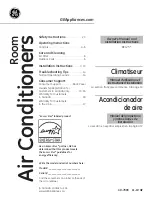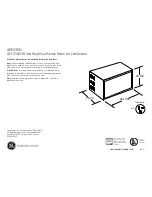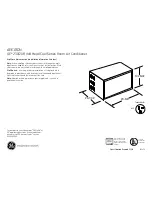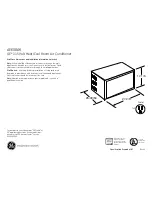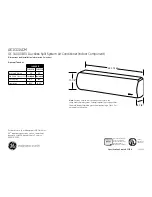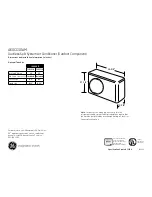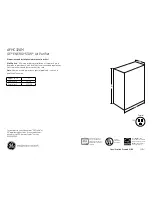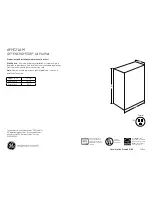
2
|
General safety precautions
Installer and user reference guide
12
FAA71+100BUV1B
Split system air conditioner
4P654517-1 – 2021.03
2.1.3 Refrigerant — in case of R410A or R32
If applicable. See the installation manual or installer reference guide of your
application for more information.
NOTICE
Make sure refrigerant piping installation complies with applicable legislation. In
Europe, EN378 is the applicable standard.
NOTICE
Make sure the field piping and connections are NOT subjected to stress.
WARNING
During tests, NEVER pressurize the product with a pressure higher than the
maximum allowable pressure (as indicated on the nameplate of the unit).
WARNING
Take sufficient precautions in case of refrigerant leakage. If refrigerant gas leaks,
ventilate the area immediately. Possible risks:
▪
Excessive refrigerant concentrations in a closed room can lead to oxygen
deficiency.
▪
Toxic gas might be produced if refrigerant gas comes into contact with fire.
DANGER: RISK OF EXPLOSION
Pump down – Refrigerant leakage.
If you want to pump down the system, and there
is a leak in the refrigerant circuit:
▪
Do NOT use the unit's automatic pump down function, with which you can collect
all refrigerant from the system into the outdoor unit.
Possible consequence:
Self-
combustion and explosion of the compressor because of air going into the
operating compressor.
▪
Use a separate recovery system so that the unit's compressor does NOT have to
operate.
WARNING
ALWAYS recover the refrigerant. Do NOT release them directly into the environment.
Use a vacuum pump to evacuate the installation.
NOTICE
After all the piping has been connected, make sure there is no gas leak. Use nitrogen
to perform a gas leak detection.
NOTICE
▪
To avoid compressor breakdown, do NOT charge more than the specified amount
of refrigerant.
▪
When the refrigerant system is to be opened, refrigerant MUST be treated
according to the applicable legislation.































